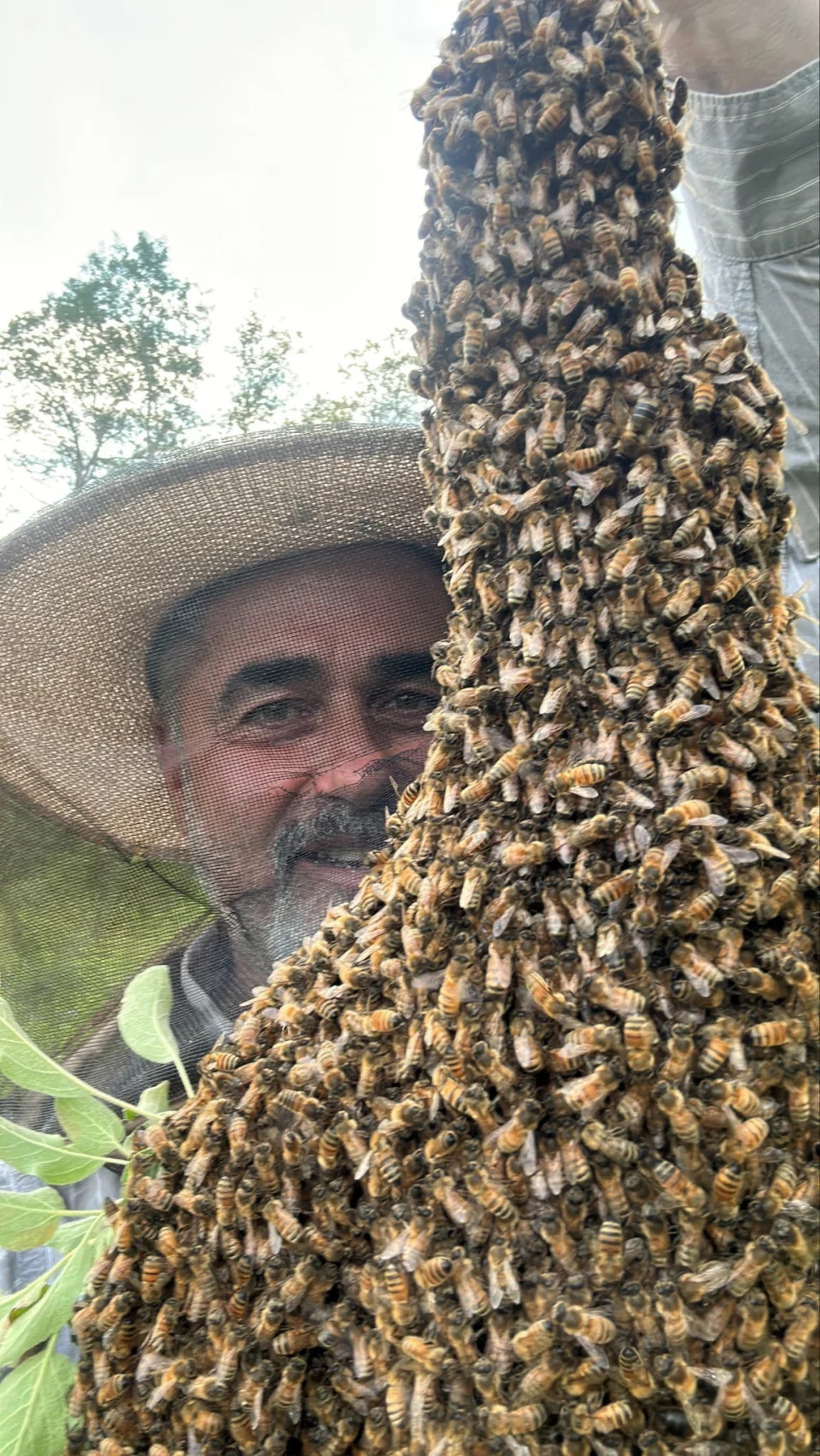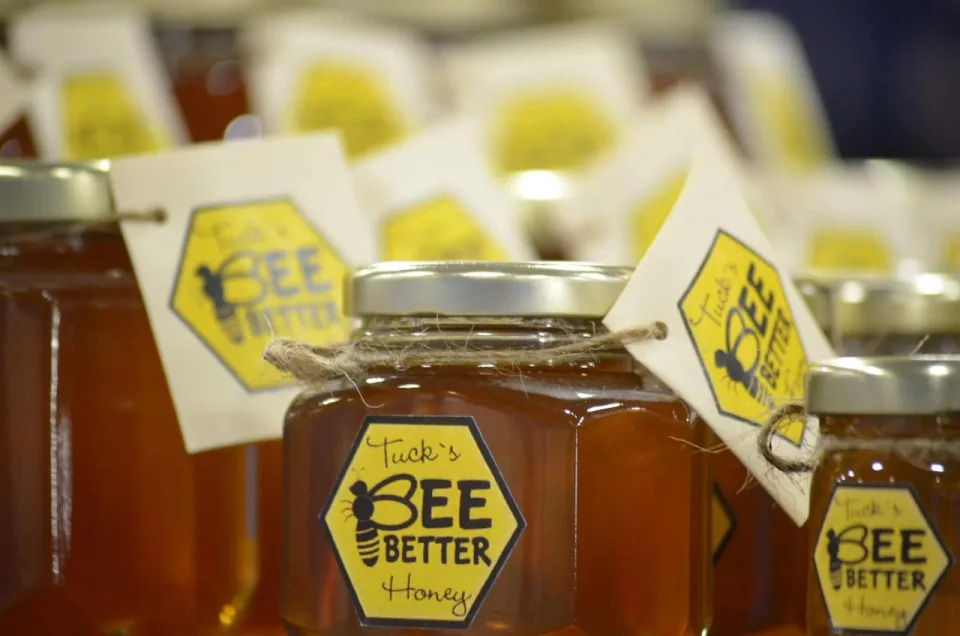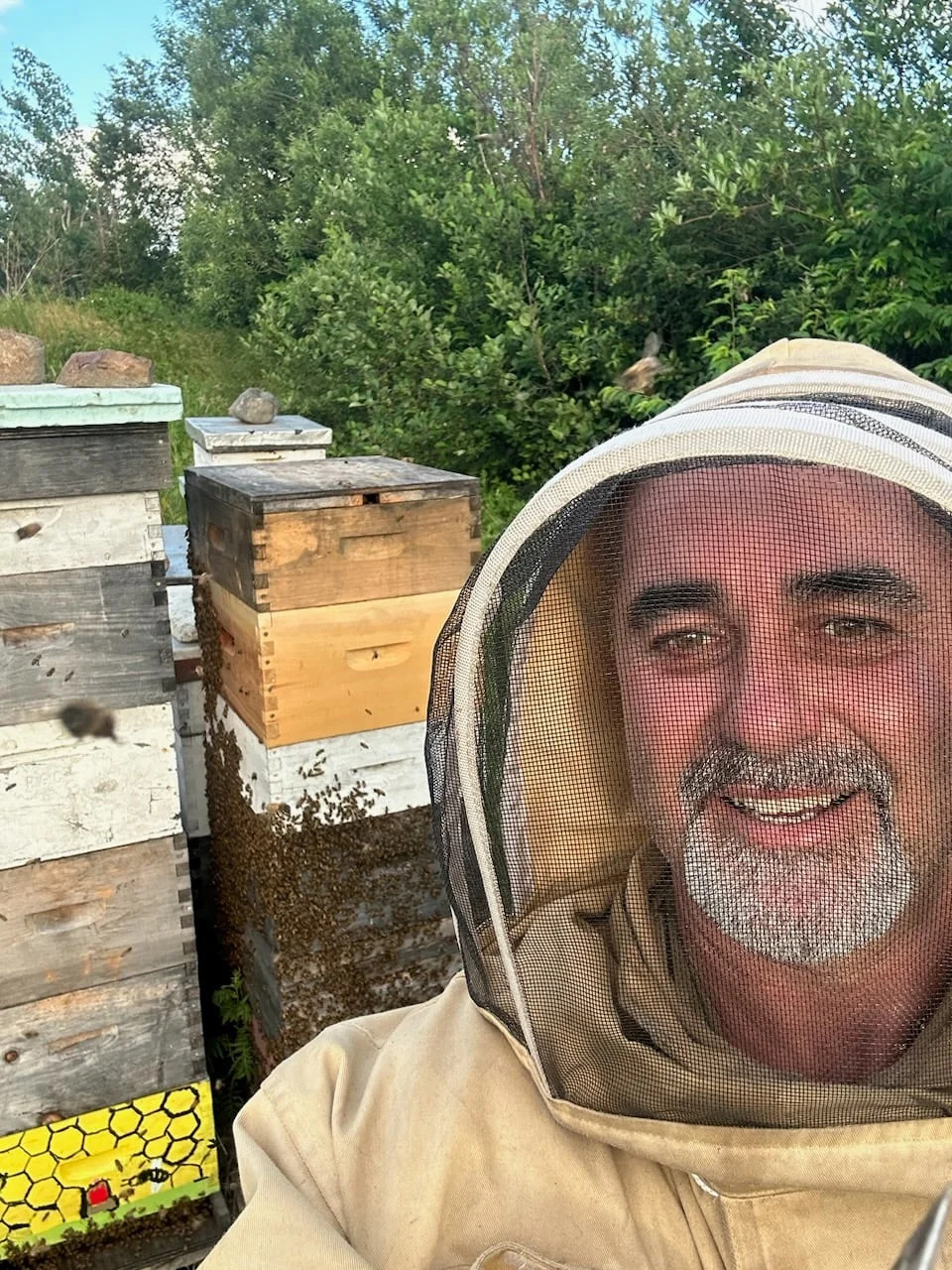CBC
Wed, October 11, 2023

Trevor Tuck has travelled to places like Tasmania to learn how the island has kept out parasites like the varroa mite. (Submitted by Trevor Tuck - image credit)
Trevor Tuck has travelled to places like Tasmania and Cuba to learn about medicinal uses for honey.
For the last six years, beekeeper Trevor Tuck has been diving into the world of medicinal honey, and he says Newfoundland and Labrador is well positioned to produce this prized sticky substance.
Tuck, the operator of Tuck's Bee Better Farm in Grand Falls-Windsor, recently applied for a Crown land lease for two parcels of land near Cannings Lake.
One plot will be for his beehives, and the other will be a 2,042-hectare forage area. He said he intends to make sure the area isn't touched by potential pollutants.
"The key thing being, is that they are in an area that they are not exposed to pesticides, herbicides, fungicides, miticides, industrial toxins or anything like that," Tuck told CBC News in a recent interview.
That means making sure the land he wants to lease isn't sprayed with anything that could compromise the medicinal honey he hopes to produce at his facility, he said.
Healing properties
Honey "is the bomb," said biotechnology Cheryl Ketola, Toronto's Fanshawe College's former program co-ordinator.
Ketola, who has studied the subject for several years, said one of the factors that make honey a great healer is its peroxide levels. Honey's a bit acidic, which is also a benefit. Honey can also penetrate the biofilm produced by bacteria while it incubates, she said.
"Honey is pretty complicated, you know, considering it's, like, just mostly a couple of sugars," said Ketola, who has visited Tuck's farm.
It can work on a variety of wounds, such as infected surgical wounds that are not responsive to antibiotics as well as diabetic ulcers, she said.

Trevor Tuck is aiming to become the first local producer of medicinal honey besides the honey he already sells.
Made right here
Medicinal honey can be applied through a sheet soaked in honey or as gel and lube. Tuck said he hasn't worked out what form his medical honey will be sold in yet.
He became interested in medicinal honey about six years ago while attending an agriculture conference at Guelph University, where he saw a presentation.
Since then, Tuck has made several trips abroad to see how other areas are making medicinal honey and using it, including Tasmania and Cuba.

Tuck is looking to expand his beekeeping operation in Grand Falls-Windsor with a Crown land lease to make medicinal honey. (Submitted by Trevor Tuck)
Non-profit organization Empower Global has flown him to Haiti, he said, where he taught people to keep bees so they could make medicinal honey.
Tasmania, he noted, is an island like Newfoundland, which has kept the bee population safe from the varroa mite, a parasite decimating bee populations in other areas of the world.
"I went to Tasmania and learned from the biosecurity team down there and travelled all over the island, seeing what they do to keep their island safe."
While in Cuba in April, he said, he met with various medical professionals, including a plastic surgeon and a director of a hospital's burn unit. There, he said he learned how they use honey in treatment for burns and to reduce scarring.
If he gets the Crown land lease and starts producing medical honey, he said, it will also have to pass through government regulations and it will be thoroughly tested.
No comments:
Post a Comment